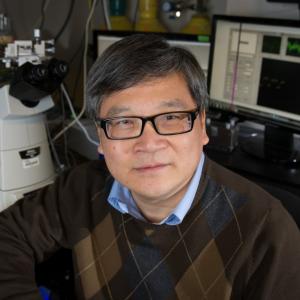Bilal Haider

Bilal Haider is an assistant professor in the Wallace H. Coulter Department of Biomedical Engineering at Georgia Tech and Emory University. He received B.S. and M.S. degrees from the University of Illinois Urbana-Champaign and M.Phil. and Ph.D. degrees from Yale University. He joined the faculty at Georgia Tech after completing postdoctoral training at University College London.









